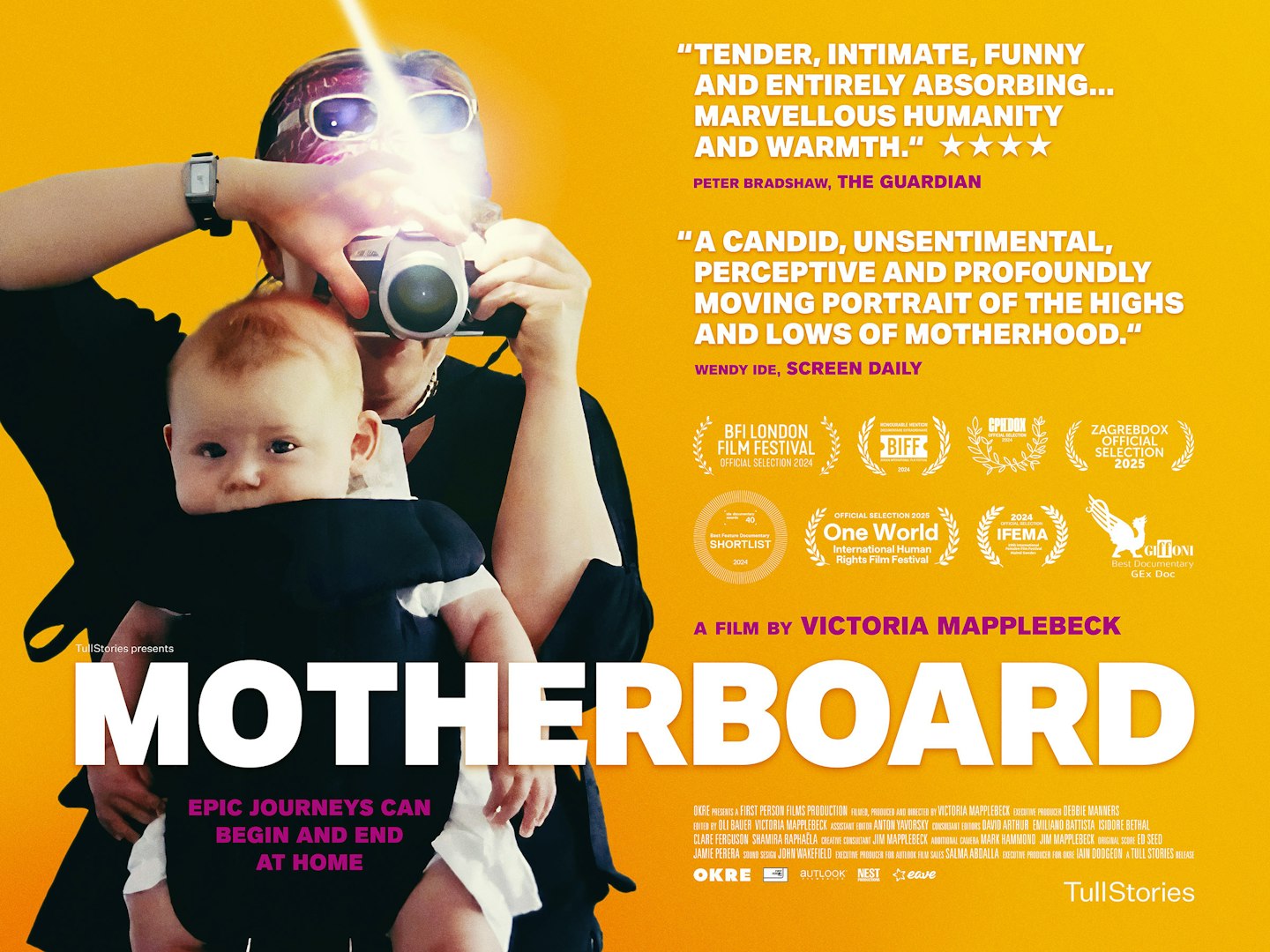People say parenthood feels like a blur – every moment and milestone slipping through your fingers like air. But what if you recorded all of these events and more? What if the challenge then became piecing it all together to capture the indescribable experience?
That's exactly what BAFTA-winning filmmaker Victoria Mapplebeck did with her latest film Motherboard, which follows two-decades of her and her son Jim's life onscreen. Shot with just a smartphone and old video footage, the film is a celebration of solo parenting and the unique bond between a parent and child when there's just two of you. It follows countless precious and challenging moments from her first scan, her breast cancer diagnosis, Jim's first day at college and two generations of absent fathers.
Critics have described the documentary as 'tender, intimate, funny and entirely absorbing' and 'a profoundly moving portrait of the highs and lows of motherhood'. One of the beauties of the film is that along with Jim's development, the technology used to record him evolves too. You can see time passing in multiple ways throughout the film.
One of the unspoken tragedies is that Mapplebeck could nearly have not made this film. Throughout the 90s and 00s, she was a self-shooting director and had built her career up to reliably getting a commission a year when she found herself unexpectedly pregnant at 38. She knew freelance filmmaking wouldn't work for her as a new parent.

'So I pretty much let go of it overnight,' she says. She switched to teaching because of how child-friendly it was and how much she enjoyed it. But she missed being behind a camera.
'I didn't have the intention of making a film about motherhood as soon as Jim came out of the womb,' she says. It was only when Jim was 12 and smartphones became 'good enough to really shoot film material on' that she'd considered making a movie again.
'I'd watched Sean Baker's Tangerine, and it was one of the first smartphone features, and it was amazing.'
Looking back, she can clearly see how many hurdles women like her face in pursuing their creative ambitions while balancing motherhood, especially as a single parent.
'I paid the motherhood penalty in terms of my career, which many women in the screen industries do.' But thanks to a smartphone short grant, she was able to create again. She filmed a short called 160 Characters which became the beginnings of what would then be Motherboard.
The years after this short were a series of difficult and momentous events in her and Jim's life. 'When Jim was about 13, he decided that he wanted to meet with his dad. He'd met him very briefly when he was a baby, but obviously had no memory, and that process was quite scary for me,' she shares.
'I would have liked Jim's dad to have been involved [in his life], but he'd made it quite clear that he couldn't handle it, didn't want to, and so I was kind of worried about whether that would mean another rejection, and needed to manage Jim's expectations.'
A year later she also learnt that she had developed breast cancer. 'That was really hard, because Jim was just shy of being 14. I think cancer for any family is really difficult, but I think when you're a lone parent, it's particularly scary. And for that child, because they've got one parent who's got a quite serious health diagnosis, it's a lot.'
After experiencing a string of huge life events in succession, she was convinced she had enough to create a film.
'I've always found that the filming really helps me get through the really shit stuff in life. When you're going through any chronic illness or cancer, you've got no control. You just have to lean into that.'
Motherboard is out in cinemas now. You can see the trailer here.
Ruchira Sharma is Acting Senior Editor at Grazia, where she writes and edits features for print and digital. From online dating culture, to cryptocurrency and online conspiracy theories, she's most interested by how online life shapes society, and co-hosts the pop culture podcast Everything Is Content.
